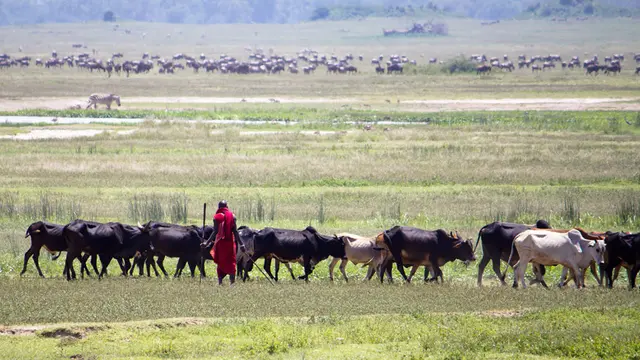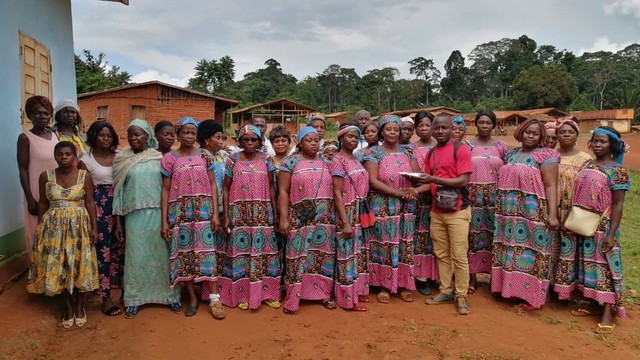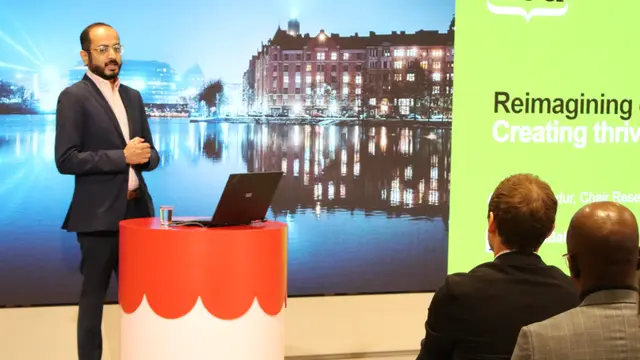Building community resilience through the locally led adaptation knowledge system in Uganda
IIED and ACTADE are exploring an innovation systems approach to bridge knowledge gaps in Uganda’s agriculture sector, to enhance resilience in vulnerable regions and among marginalised groups.

A marketplace in Fort Portal, Western Uganda (Photo: Rosalind Goodrich, IIED)
Uganda is among the countries most vulnerable to the impacts of climate change. The country is already experiencing increased intensity and frequency of extreme weather events (PDF) such as floods, droughts and erratic rainfall patterns, and slow onset events such as shifts in rainfall patterns, resulting in devastating impacts including landslides, water stress and crop failure.
An estimated 68% of Uganda's employed population depends on agriculture (PDF), mostly rain-fed, and more than 80% of the rural population rely on subsistence agriculture. Most of these smallholder farmers are in the informal sector where most marginalised groups derive their livelihood. And women are more vulnerable to impacts of climate change given that they are more involved in food production.
Although these groups are at the frontline of the climate impacts, they are rarely involved in decision-making for climate action and have limited access to resources, including on climate information and finance.
Objectives
IIED and the African Centre for Trade and Development (ACTADE) aim to address these challenges by strengthening the agricultural adaptation knowledge systems to build community resilience. Focusing on the semi-arid regions of Lango and Bukedi in Uganda’s cattle corridor, where extreme weather events are frequent and poverty rates are high, the project seeks to:
- Strengthen collaborations between locally led adaptation knowledge creators and users
- Increase access to and utilisation of locally relevant adaptation knowledge and information, and
- Contribute to reforming systemic barriers (such as gender and social inequalities), that hinder inclusive climate action and access to climate finance for women, youth and other marginalised groups.
What will IIED do?
This project, led by ACTADE, will adopt an innovation system approach. It will work across the full spectrum of the climate knowledge value chain, which includes knowledge producers and disseminators such as governments, universities, the media, civil society networks and private sector actors, plus users such as smallholder farmers, women, youth and local governments.
IIED will provide technical support by:
- Co-designing research tools and methods
- Co-facilitating deliberative dialogues with stakeholders, including knowledge creators, disseminators and users
- Co-creating knowledge products
- Co-developing a robust monitoring, evaluation and learning system
- Capacity strengthening in communication, and
- Providing technical input on reports and knowledge products.


